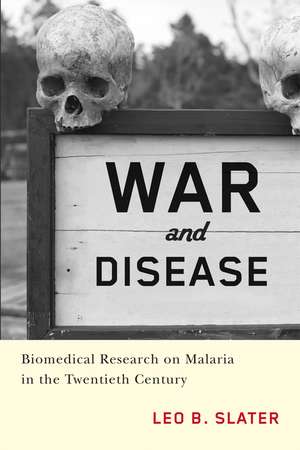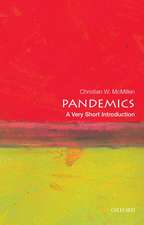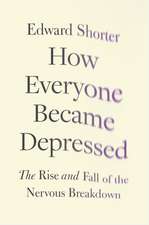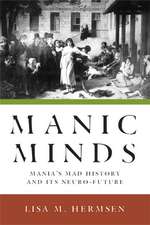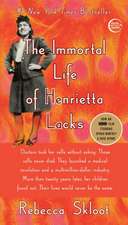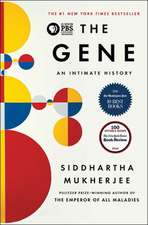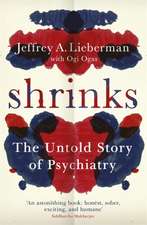War and Disease: Biomedical Research on Malaria in the Twentieth Century: Critical Issues in Health and Medicine
Autor Dr. Leo Slateren Limba Engleză Paperback – 13 mar 2014
Malaria is one of the leading killers in the world today. Though drugs against malaria have a long history, attempts to develop novel therapeutics spanned the twentieth century and continue today. In this historical study, Leo B. Slater shows the roots and branches of an enormous drug development project during World War II. Fighting around the globe, American soldiers were at high risk for contracting malaria, yet quinine–a natural cure–became harder to acquire. A U.S. government-funded antimalarial program, initiated by the National Research Council, brought together diverse laboratories and specialists to provide the best drugs to the nation's military. This wartime research would deliver chloroquinine–long the drug of choice for prevention and treatment of malaria–and a host of other chemotherapeutic insights.
A massive undertaking, the antimalarial program was to biomedical research what the Manhattan Project was to the physical sciences.
A volume in the Critical Issues in Health and Medicine series, edited by Rima D. Apple and Janet Golden.
A volume in the Critical Issues in Health and Medicine series, edited by Rima D. Apple and Janet Golden.
Din seria Critical Issues in Health and Medicine
-
 Preț: 267.58 lei
Preț: 267.58 lei -
 Preț: 220.94 lei
Preț: 220.94 lei - 5%
 Preț: 242.73 lei
Preț: 242.73 lei -
 Preț: 184.80 lei
Preț: 184.80 lei - 5%
 Preț: 241.78 lei
Preț: 241.78 lei - 5%
 Preț: 314.84 lei
Preț: 314.84 lei - 5%
 Preț: 292.69 lei
Preț: 292.69 lei - 5%
 Preț: 318.35 lei
Preț: 318.35 lei - 5%
 Preț: 311.37 lei
Preț: 311.37 lei - 5%
 Preț: 1076.59 lei
Preț: 1076.59 lei -
 Preț: 287.67 lei
Preț: 287.67 lei - 5%
 Preț: 270.90 lei
Preț: 270.90 lei -
 Preț: 315.48 lei
Preț: 315.48 lei - 5%
 Preț: 293.77 lei
Preț: 293.77 lei - 5%
 Preț: 427.88 lei
Preț: 427.88 lei - 5%
 Preț: 1078.40 lei
Preț: 1078.40 lei - 5%
 Preț: 296.39 lei
Preț: 296.39 lei - 5%
 Preț: 288.29 lei
Preț: 288.29 lei - 5%
 Preț: 298.62 lei
Preț: 298.62 lei -
 Preț: 309.24 lei
Preț: 309.24 lei -
 Preț: 312.21 lei
Preț: 312.21 lei -
 Preț: 286.30 lei
Preț: 286.30 lei - 5%
 Preț: 276.52 lei
Preț: 276.52 lei - 5%
 Preț: 305.79 lei
Preț: 305.79 lei - 5%
 Preț: 1079.33 lei
Preț: 1079.33 lei - 5%
 Preț: 299.90 lei
Preț: 299.90 lei - 5%
 Preț: 290.87 lei
Preț: 290.87 lei - 5%
 Preț: 410.09 lei
Preț: 410.09 lei -
 Preț: 259.42 lei
Preț: 259.42 lei -
 Preț: 305.55 lei
Preț: 305.55 lei - 5%
 Preț: 314.32 lei
Preț: 314.32 lei - 5%
 Preț: 262.95 lei
Preț: 262.95 lei - 5%
 Preț: 277.67 lei
Preț: 277.67 lei - 5%
 Preț: 301.72 lei
Preț: 301.72 lei - 5%
 Preț: 280.06 lei
Preț: 280.06 lei
Preț: 298.77 lei
Preț vechi: 314.50 lei
-5% Nou
Puncte Express: 448
Preț estimativ în valută:
57.17€ • 59.69$ • 47.31£
57.17€ • 59.69$ • 47.31£
Carte tipărită la comandă
Livrare economică 05-19 aprilie
Preluare comenzi: 021 569.72.76
Specificații
ISBN-13: 9780813569659
ISBN-10: 0813569656
Pagini: 264
Dimensiuni: 152 x 229 x 33 mm
Greutate: 0.36 kg
Ediția:First Paperback Edition
Editura: Rutgers University Press
Colecția Rutgers University Press
Seria Critical Issues in Health and Medicine
ISBN-10: 0813569656
Pagini: 264
Dimensiuni: 152 x 229 x 33 mm
Greutate: 0.36 kg
Ediția:First Paperback Edition
Editura: Rutgers University Press
Colecția Rutgers University Press
Seria Critical Issues in Health and Medicine
Recenzii
"Leo Slater has created an original work on a subject often ignored by historians. War and Disease makes a wonderful, and much needed, contribution to the history of medicine and science."
"Leo Slater has not only prepared a historical study on the chemotherapy of malaria, he has carefully analyzed needs of the times and produced a finely dissected assessment on the impact of these efforts on the development of science and the funding of scientific research in the United States."
"Few historians have the training to take on the complex world of malaria pharmacology, and few pharmacologists have the historical skills to understand the evolution of these important drugs. In this path-breaking book, Leo Slater draws on his background in chemistry and history to ably document the curious course of malaria drug research, bringing important balance to a historiography that has been at times overly attentive to the mosquito and less keen to recognize the importance of medications for prophylaxis and cure."
"Slater's scholarly but fluid narrative style and careful and easy-to-understand explanations of technical concepts make War and Disease accessible to a broad readership. His work is an important contribution to studies of wartime biomedical research and helps historians, medical researchers, and policy makers more fully understand the underpinnings of today's labyrinthine U.S. biomedical research program."
"War and Disease, is an excellent historical account of the role that combating malaria played in the scientific and organizational transformations to biomedical research in the United States during primarily World War II. Many historians of disease have focused their attention on the discovery of the mosquito as a vector for malaria, ignoring the importance of drug development and therapy for malaria prophylaxis and treatment, but Slater brings such issues to the forefront and puts them within the broader context of wartime necessities in the United States during the 1940s. More important, though, Slater's work gives us an insight into the modern structure of government-funded biomedical research, its benefits, and its pitfalls."
"This deeply researched book is the first major study of the large-scale World War II antimalarial project and is the indispensable starting point for future investigation of synthetic antimalarials."
"War and Disease is a fascinating historical account of the discovery of drugs effective against malaria, one of the great scourges of humankind."
"War and Disease is recommended highly and should be on any reading list regarding the rise of big science in the twentieth century."
"A major contribution to malaria historiography. This indispensable study on antimalarial drug history leaves us with the reminder that a magic bullet against malaria still does not exist, despite major efforts against the disease, and that multiple chemotherapies, in conjunstion with mosquito control efforts, are needed."
"This is an admirable book, well researched and clearly written. Slater handles technical and organizational complexities with aplomb, rigor, and surety."
"War and Disease is a well-written book that provides insights into the US antimalarial program of the 20th century and into the subsequent research programs that are attempting to deal with the challenging diseases of today."
"Slater's essay, relying on a wealth of archival sources, details extremely well the development of antimalaria drug research in the first-half of twentieth century, carefully describing the growth of a small department to become a substantial part of the US war effort. The book adamantly shows this momentous shift in contemporary science."
Notă biografică
Descriere
Malaria is one of the leading killers in the world today. Though drugs against malaria have a long history, attempts to develop novel therapeutics spanned the twentieth century and continue today. In this historical study, Leo B. Slater shows the roots and branches of an enormous drug development project during World War II
A massive undertaking, the antimalarial program was to biomedical research what the Manhattan Project was to the physical sciences.
A volume in the Critical Issues in Health and Medicine series, edited by Rima D. Apple and Janet Golden.
A volume in the Critical Issues in Health and Medicine series, edited by Rima D. Apple and Janet Golden.
